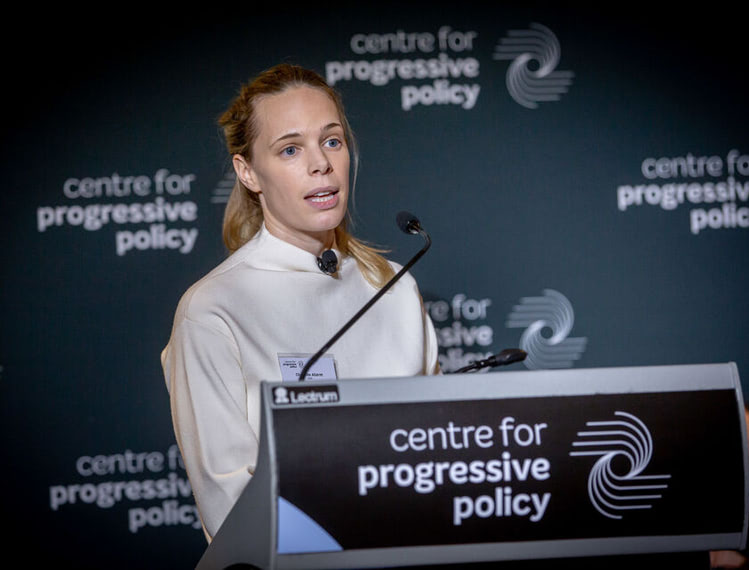Successfully ‘levelling up’ would add £242bn to Great Britain’s economy each year

@CentreProPolicy report suggests delivering on #LevellingUp agenda would lead to annual productivity windfall of £242bn, equivalent to 13% of Great Britain’s GVA
According to new research “Beyond hard hats – what it will take to level up the UK” released by the Centre for Progressive Policy (CPP) today (6 Oct), levelling up the ‘Red Wall’ would lead to a boost of £39bn each year – double the total annual expenditure on adult social care. CPP sets out blueprint for how the government can deliver on its agenda and will provide assessment of its progress on a quarterly basis
With productivity driving real wages and improving living standards, the report shows the scale of potential gains in levelling up but suggests the government needs to take a more targeted approach to make this a reality.
According to the research, levelling up former Red Wall areas would result in an additional £39bn in economic output each year, which equates to double the total annual expenditure on adult social care. But with Covid-19 continuing to exacerbate regional economic inequalities, places across the UK will require different types of support and tailored policies for levelling up to be a success.
To understand how the government should approach levelling up in each area, and which policies will be most effective, CPP has developed a productivity breakdown by place across the UK. The analysis also looks at the reasons why certain places are more productive than others.
The research reveals that:
- Nearly all of England’s combined authorities suffer from a productivity gap with the rest of the UK, mainly related to poor health and a young workforce. Former Red Wall areas – including Ashfield, Lincoln and Bassettlaw – are held back by poor health and a high proportion of low productivity sectors.
- Age, health, skills and education critical factors in determining local productivity. Age of the workforce accounts for over half of London’s productivity advantage over the rest of the country. Similarly, there is a positive correlation between places with high levels of skills and the presence of high productivity sectors in an area – as can be seen in Reigate and Banstead.
- ‘Within region’ inequality rife across the UK. Broad regional trends disguise inequalities within regions. Rural Yorkshire, for example, has an ageing workforce, whilst its cities are young but in poor health. The differences within regions are as wide as the differences between them when it comes what influences productivity.
Based on this analysis, CPP is calling on the government to level up the UK by:
- Full roll out of Mayoral Combined Authorities across England plus broad devolution to established regional mayors – Mayors of regional combined authorities should be given total flexibility in how they invest pooled public sector budgets, including Further Education and skills, employment support, early years, housing and transport.
- Clear, local accountability for levelling up and a new National Mayoral Council – Mayoral Combined Authorities must tackle within area inequalities with clear accountability for agreed outcomes. Regional mayors should also have a formal voice in national policy and investment decision making, especially that which impacts economic and social outcomes in their place (e.g. large-scale infrastructure, welfare policy).
- Delivering on skills – People must be able to afford to learn and to do so flexibly. Recent announcements on a government funded A-level or equivalent technical qualification are welcome, but more is needed to help people take up this opportunity in practice. We call for a Learners’ Living Allowance (LLA) to support those undertaking part- or full-time training, in the same way maintenance loans are available for higher education students.
- Expanding the roll out of education ‘Opportunity Areas’ from 12 to 100 local authorities – widening the impact of additional government funding to tackle educational inequalities in cities and towns across England.
CPP will be tracking the UK’s progress in reducing economic inequalities and holding the government to account on the levelling up agenda via a quarterly Levelling up outlook, examining key trends based on official statistics.
Charlotte Alldritt, Director at the Centre for Progressive Policy, said:
“The opportunity of the levelling up agenda is huge. As the pandemic continues to play out, it is also increasingly urgent. What began as a thinly veiled political project has the potential to redraw the map of opportunity, productivity and prosperity in the UK for generations.
“But the UK’s long-standing regional economic and social inequalities are often characterised as a problem of ‘London vs The Rest’. CPP’s research shows that the reality is much more complex, with devastating differences within regions as well as between them.
“The government must take these inequalities into account and channel investment now into skills, education and health where it is needed most. The government has made repeated promises on levelling up, but it’s time to see tangible action. The Centre for Progressive Policy will assess the governments’ progress on a quarterly basis.
“Without real, rapid results, rather than building back better we risk falling back further”.
Dan Jarvis MP, Mayor of Sheffield City Region:
“The current crisis has worsened longstanding social and economic challenges affecting people in South Yorkshire and across the UK. The need to level up our country and to provide opportunities for everyone has never been greater.
“Done right, the levelling up agenda has the potential to significantly improve the health, education and skills of our communities, raising productivity and living standards, reducing inequality, and making our country stronger, greener, and fairer.
“Mayoral Combined Authorities like the Sheffield City Region play a major role in this process. We know our local obstacles and opportunities. We know what is needed to make our places and people prosper.”
Chris Murray, Director of Core Cities said:
“We welcome this work as a vital step towards making sure ‘levelling up’ turns into a set of concrete policy proposals that improve quality of life and prosperity for the many.
“As part of its work, Core Cities UK has set out an evidence-based case for decentralisation and devolution, backed by the OECD, showing that centralisation has held the UK economy back for decades. A largely centralised response to Covid-19 should not follow through into a one size fits all approach to economic recovery and renewal. A strong local as well as national state is vital to create a stronger, more inclusive, future economy.
“Yet local government is facing an existential funding crisis in parts of the UK, and if the pandemic has taught us anything, it is that well-functioning public services and the economy are interlinked. Our key message to Government – and one echoed in this work from the CPP – is that recovery must be locally led and built on the foundations of adequately resourced public services”.











Responses